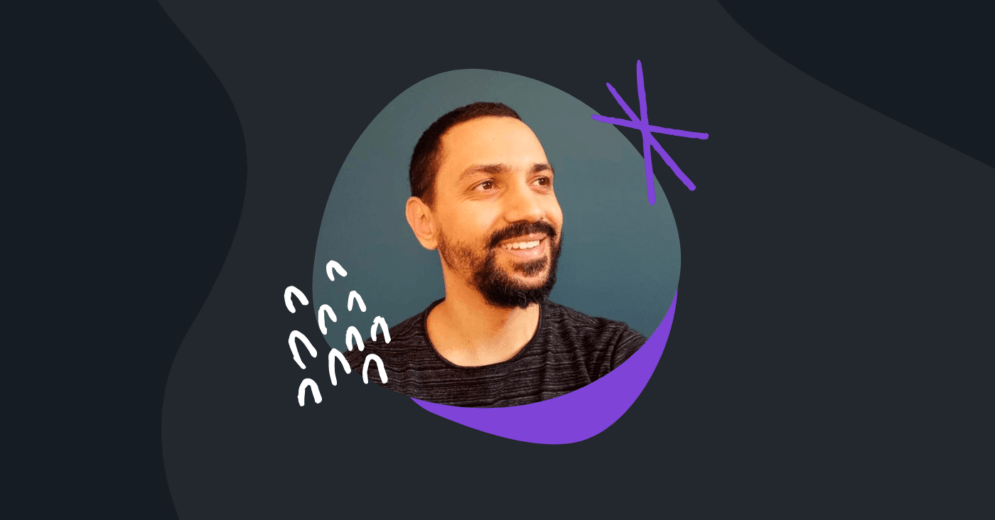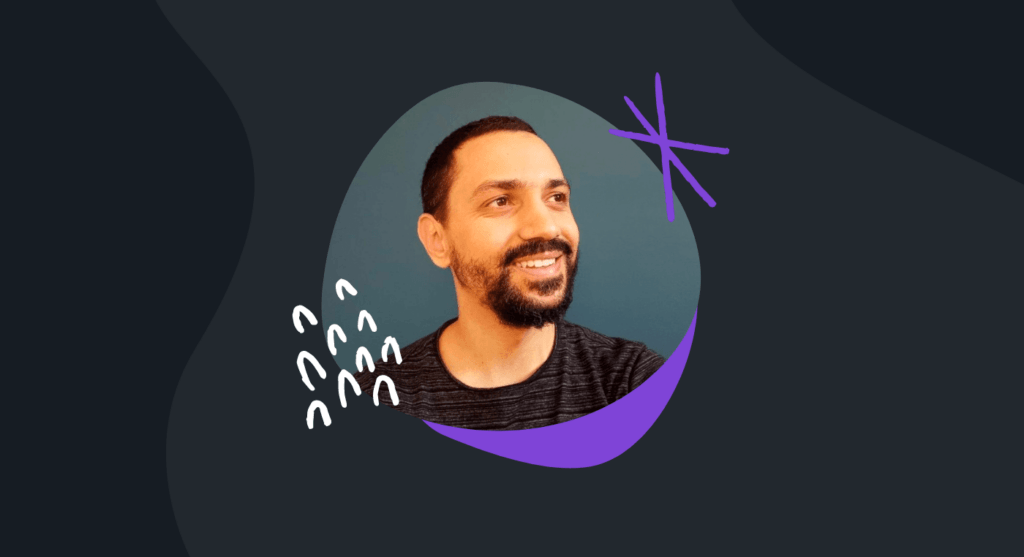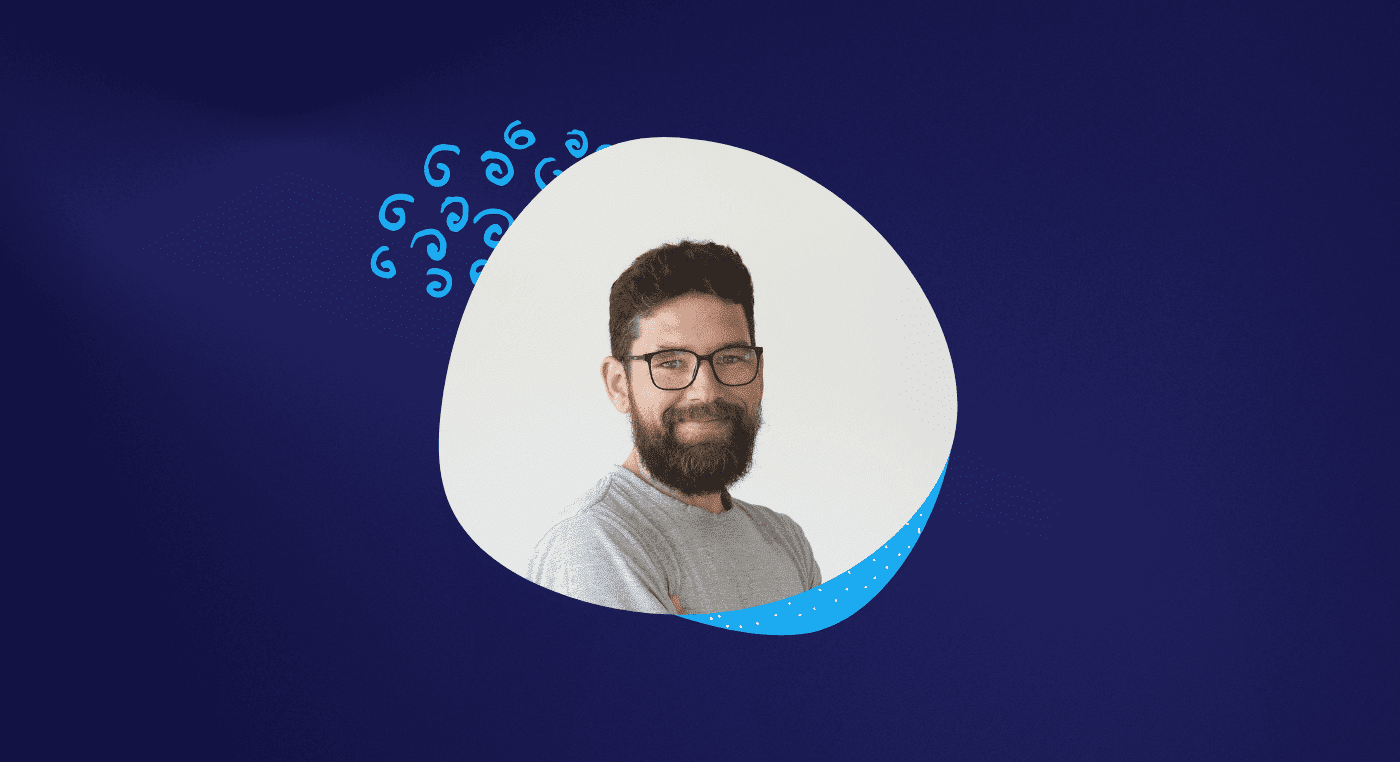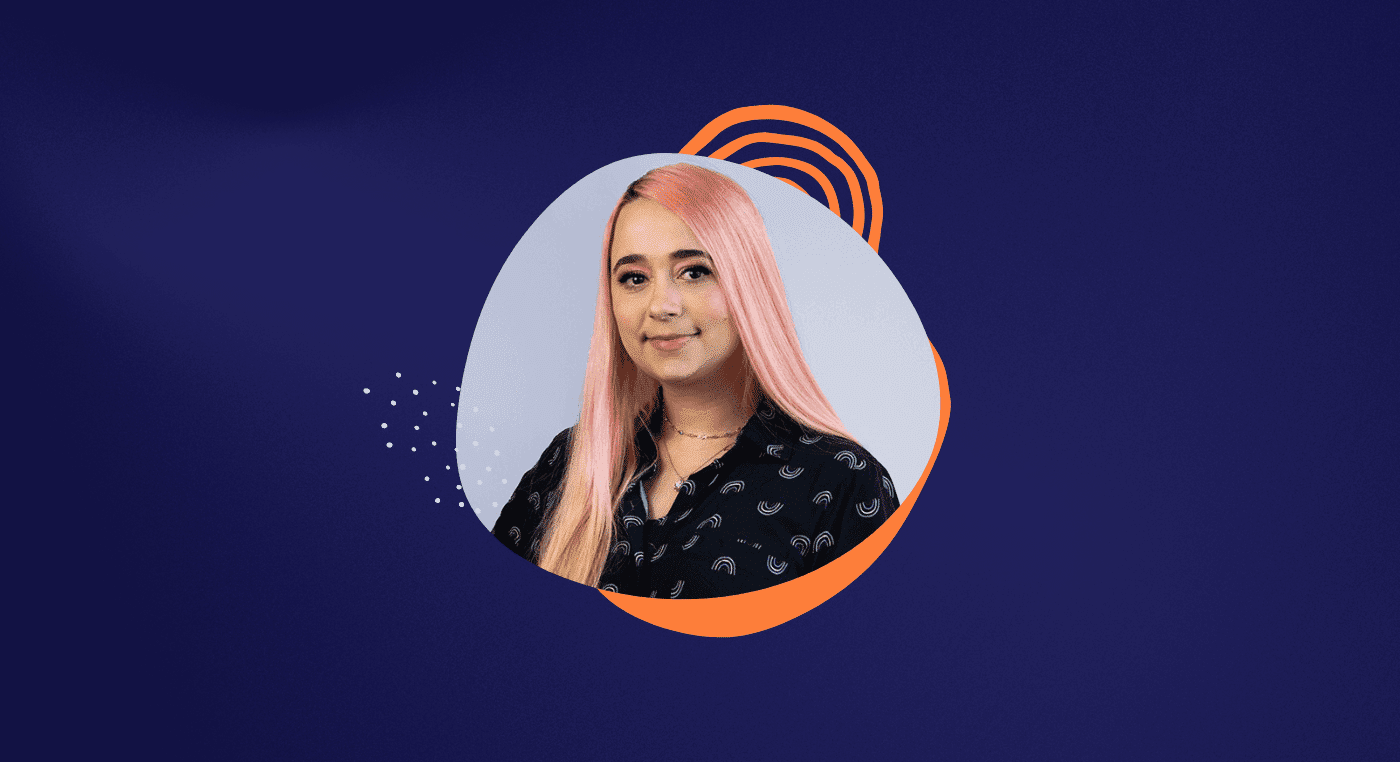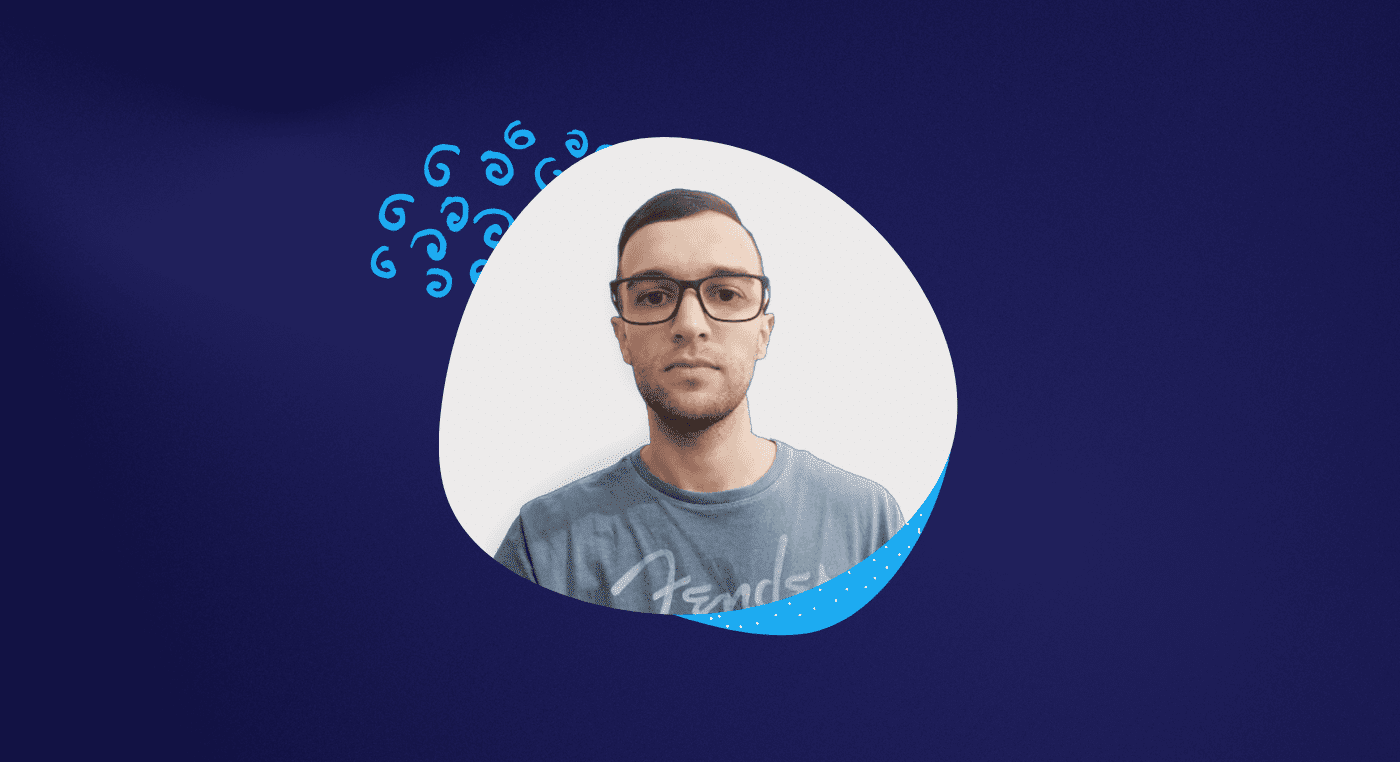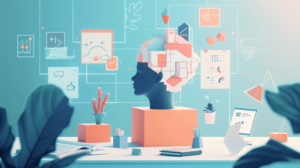Wesley is our student from the Mastering interface design program, and in this talk, he tells us about his journey to pivot to UX Design.
With a degree in Graphic Design, Wesley dedicated himself to studying UX when he decided to leave a job whose environment was unhealthy.
Furthermore, Wesley highlights the importance of exercising patience during his search for a job in his field, as it ultimately led him to secure his dream position.
Continue in this article and be inspired by this story!
Hi Wesley, please tell us a bit about your story!
Felipe, thanks for the opportunity! I have a degree in Graphic Design, and I have always studied and applied for jobs in this area.
But at the end of 2017, I had a great desire to switch careers because I was working in a company that was not doing me any good.
This company was very toxic, with an unhealthy work environment. There were insults and abuse, and this situation sparked in me the desire to change.
I wanted to work in a different company that valued me for my work. So I left this toxic place without even having another job opportunity.
Right after I left the company, I got interested in UX Design. I started watching videos from UXNOW, and also reading articles and books that were known in UX.
At a very slow pace, I spent a year studying on my own. Then, in 2019, I came across Aela, and I really liked your marketing approach. It's not aggressive, and it piqued my curiosity to learn more about the MID program.
Unfortunately, I missed the MID applications, and I was not able to apply until late 2019. When I did, I dug myself into UX Design!
Until then, I was only studying to get to know the field and understand if this was the move I wanted to make in my career.
When I first started the MID program, I felt connected to the field, and it was clear to me that I had made the right choice!
What caught your attention in UX Design?
I think the fact that everything you study boils down to developing something that helps people.
What I was doing before was no longer satisfying. I didn't believe in what I was doing, of doing something just because someone was telling me to.
In UX Design, I liked the research side of it, understanding the user, the business, and the market; UX Research really caught my attention.
Along with this, I started to notice that many technology companies were looking for professionals in this area to make a difference in the business.
How was the transition from Graphic Design to UX Design?
At first, at least for me, it seemed like a very smooth change.
But as you study and get deeper into the field, you begin to realize the small differences that exist between the two professions. And the combination of these small differences, in the end, becomes very significant.
After that, it's like a key turning point in your head, and you realize how different the two fields are.
This perception only happened because I studied – and still study – a lot! More than I studied in college, actually!
When I started the MID program, the first modules were longer for me because I tried to go deeper into the subjects.
My goal was to work in fintech, and today I have succeeded!
Since you have read many UX books, do you have any to recommend?
To start with, I think Don Norman's The Design of Everyday Things is very good for getting a general idea about UX Design.
I also recommend reading Steve Krug's Don't Make Me Think. This book is pretty much mandatory for everyone who wants to switch to UX.
I am currently reading one called 101 UX Principles: A Definitive Design Guide, by Will Grant.
Oh, another book I also recommend is Emotional Design, also by Don Norman.
Reading Tip: Does UX Design Limit Creativity?
How was your process to land your position in UX Design?
Something that always struck me in many of Aela's videos was that you always emphasize the importance of knowing how to choose the right job and be patient because the right opportunity will present itself at some point.
This advice really struck me, I held on to it, and it actually worked for me.
At the beginning of the transition, we can get anxious and think a lot about the financial side, rightly so, because we have bills to pay.
But in my case, I was very focused on finding a company I liked to work for, given my work history.
In this regard, in the interviews, I would always ask questions to understand how the companies' work routine was, how management was, etc.
This process of interviewing the company was something I didn't do in the past and only started after I saw you and other students talking about it.
Then, at the beginning of 2020, before the pandemic, I revamped my whole LinkedIn, following the tips you always gave. As a result, some opportunities came up, and recruiters got in touch with me.
I remember an interview where I was eager to accept their offer. But I thought about the importance of waiting for the right position, so I turned down the offer, even though the salary was very attractive.
After that, I researched more about this company and was surprised to find that many people said that the work environment there was not good.
I felt relieved that I had not accepted! Also, the position was more for UI work; at the time, I didn't want to focus only on that.
Then the pandemic hit, and the jobs were not coming in for a while. But soon, new opportunities came up, and two companies called me for the recruitment process.
I succeeded and chose to join the company I am in today! A company exactly as I wanted it to be, in the financial market, with technology and an excellent work environment.
How was the recruitment process for this company?
The process was very smooth, actually. There was no need to take a test – Design Challenge.
They evaluated my portfolio, and then I had two interviews. I felt it was a much more personal analysis.
I talked to the UX Designer who was already working on the team and a person from HR. It was a conversation to understand the area, what I do, and what I would do in certain situations that they explained.
They made it clear that they were not looking for someone to make pretty screens; they wanted someone who would think through the whole process more strategically. That was their main concern.
At this point, I realized that the company had good UX Design maturity.
Reading Tip: A Brief Story About Usability
How is the routine in this company?
I have to work with screens and layouts, yes. But at this point, I am also participating in a project to remodel an existing software.
So, I have to study a lot: the interviews, users, and their journey, besides understanding how the product itself works. This is a very big part of the work
As it's a fintech company, I am working on pensions. So I also have to study a lot about this market, which is quite complex, especially here in Brazil.
What about the remote work aspect?
I think it is more of an adaptation issue.
I had never worked remotely before, so I had to adapt to this model.
Every day we have a team meeting to talk about our day, and I always try to talk to other people as well.
I want to understand the processes and get to know the people; since we are not physically there, we can't sit next to a person and invite them for a coffee or something like that. So I try to keep in touch online.
It was a little difficult because I was used to the face-to-face work model.
Reading Tip: 5 Soft Skills to Make a Difference as a Designer
Last question: if you could go back in time, what advice would you give yourself?
I would tell myself not to be afraid and to jump into UX Design.
After some reflection, I realized I had never gone headlong into something. Many of my friends did this with their careers.
I realized that I should change my mindset.
If you don't like something and if you are unhappy in a place that only hurts you, you have to dive in and change this.
I changed a lot. If you asked Wesley from the past if he imagined working in a financial company, he would probably say no.
But here I am!
So get your head in the game, study hard, and get some tips from people who are in the same process as you! One day things will happen!

